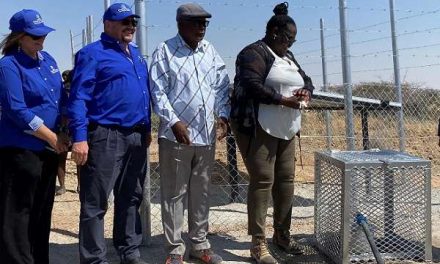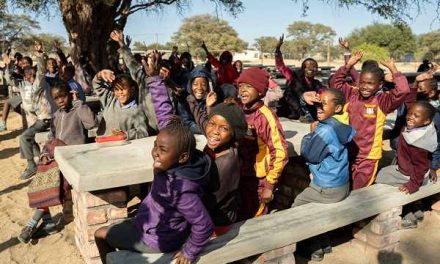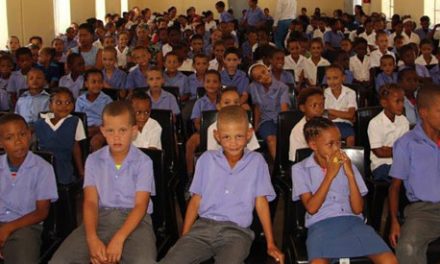
Poverty wears a woman’s face

Special Rapporteur Magdalena Sepúlveda with children from the Kapoko Constituency, Mupini Village during her visit to Rundu.
During her mission, Sepúlveda visited the Omaheke, Kavango, Khomas, and Karas regions, where she met government officials, civil society organisations and communities living in poverty. “During my stay, I have seen that in Namibia, poverty wears a woman’s face. In Kavango, for example, the poorest region with almost half of the population living below the national poverty line – 43% and 24% severely poor, I witnessed the fierce struggle of poor women to feed their children,” she said.
In Havana, an informal settlement in Windhoek, Sepúlveda said women shared with her their sense of disillusion. “While they try hard to overcome poverty, they feel that the system is constantly working against them,” she stressed. In Keetmanshoop Sepúlveda met with indigenous people and a landless community of mainly female-headed households, who have been forcibly evicted from an informal settlement to a location further away from jobs and services. “These families have lost their few possessions and feel abandoned by the local authorities, yet they survive with their dignity and determination untouched,”said Sepúlveda.
Sepúlveda noted that although Namibia provides robust legal protection for women through its Constitution and legislation, women continue to be economically marginalised, saying that women are disproportionately affected by unemployment, HIV/AIDS and lack of access to land. “The socio-economic inequality of women and girls and some negative cultural practices are at the root of widespread gender-based violence that in turn increases the risk and vulnerability of women and girls to poverty, social exclusion and disempowerment,” she said.
Sepúlveda was also alarmed at the rate of maternal mortality in the country, which she said remained exceptionally high and the fact that Namibia has made virtually no progress in this regard, describing it as a tragic, unacceptable and wholly preventable reality. Sepúlveda called on the government to make the reduction of maternal mortality an urgent priority.











































